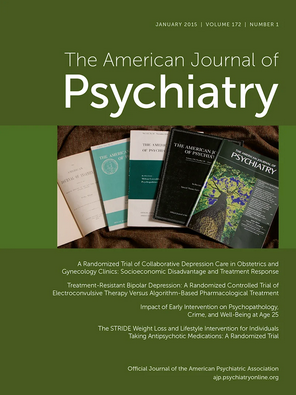Excerpt: PUI [including problematic porn use] is associated with deficits in general executive functions, decision making, and stimulus-specific inhibitory control that may evolve in later stages of addiction development.
The American Journal of Psychiatry
Müller, et al., 28 May 2025
Abstract
Objective:
Reduced cognitive functions are commonly associated with diminished self-control abilities. Research on cognitive functions in gaming disorder and other specific types of problematic usage of the Internet (PUI) remains rare. The aim of this study was to compare performance in different cognitive domains between clinically validated groups of individuals with and without specific PUI.
Methods:
The data, from a large-scale multicenter study in Germany, were collected between October 2021 and August 2024. The study compared three groups: Internet users with pathological use (N=284), risky use (N=305), and nonproblematic use (N=424). Grouping was based on structured interviews for four types of specific PUI (gaming, buying-shopping, pornography use, social network use). All participants underwent extensive laboratory testing, including self-report scales and standard cognitive tasks: Modified Card Sorting Test, Stroop test, a logical reasoning test, Game of Dice Task, a delay discounting task, and a go/no-go task with Internet-related stimuli.
Results:
The groups differed significantly regarding both behavioral (partial eta2 ≤0.06) and self-report measures (partial eta2 ≤0.14) of self-control abilities. The group with pathological use showed the weakest mean performance in all tasks. The groups with risky and nonproblematic use barely differed in behavioral measures but did differ in self-reported self-directedness and attentional impulsivity. Post hoc analyses revealed significant (interaction) effects of PUI type.
Conclusions:
PUI is associated with deficits in general executive functions, decision making, and stimulus-specific inhibitory control that may evolve in later stages of addiction development. Potential PUI-specific differences should be considered when designing trainings and interventions that target improving self-control abilities.
